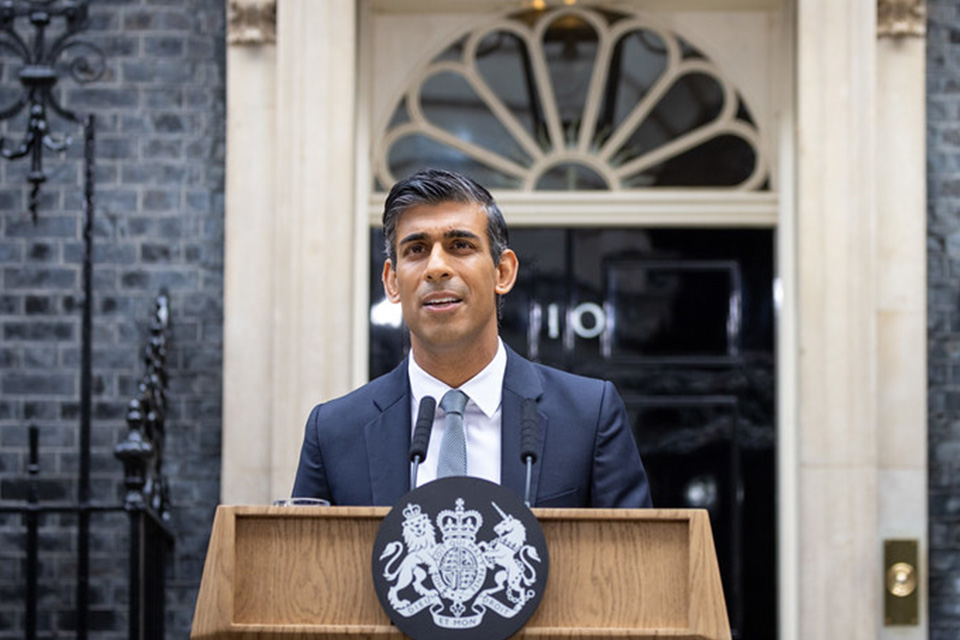Chancellor Statement - Budget press conference
Delivered by the Chancellor Rishi Sunak on 3 March.

Good afternoon.
Earlier today I presented the Budget to the House of Commons.
And I’m speaking to you now, directly, to explain what this Budget means for our economy and for you at home.
I want to be honest with you about the problems we face and our plan to fix them.
This time last year we all began a collective national effort to constrain coronavirus, shield the vulnerable and protect jobs and businesses.
Since then, the Government has announced more than £280 billion to protect people’s lives and livelihoods.
Our plan is working.
The independent Office for Budget Responsibility has today shown that because of interventions like the furlough the economy is now expected to recover more quickly and fewer jobs will be lost.
But we still face significant challenges.
People are being told to stay at home; businesses are still closed.
It’s going to take us a long time to fully recover from the damage coronavirus has done to our economy.
Today’s Budget is a three-part plan to protect the jobs and livelihoods of the British people.
The first part is this: we’re going to keep economic support in place until well past the point that we exit lockdown.
The furlough scheme, support for the self-employed, business grants, business rates holidays, tax cuts and the temporary universal credit uplift, have all been extended, and generously.
Taken together, this year and next, we’re spending £407 billion to support people and businesses through coronavirus.
I said whatever it takes, and that means for however long it takes.
But that unprecedented level of support, combined with the damage coronavirus has done, places huge strain on our public finances.
Simply put: we have to get borrowing and debt back under control.
So the second part of today’s Budget begins fixing that.
Now, some people think we should ignore this problem or, worse, there are some who think there is no problem at all.
But I think that’s wrong.
If we don’t act, once the economy has recovered, to control our borrowing we won’t be able to fund the stronger public services people want to see and when the next crisis comes along, we won’t be able to respond with the boldness we have this time.
So I want to be honest with you now, today, about how we’ll begin fixing the public finances.
The choice I’ve made is, as much as I can, to protect working people, small businesses and public services.
And so, while I have chosen to freeze personal tax thresholds some of the most generous in the world I am not going to increase the rates of income tax, national insurance or VAT.
And I am not going to find the money we need by taking it from public services like schools or the NHS.
Freezing tax thresholds is fair, asking more of those on higher incomes.
And we’re going to ask large businesses, who have made a profit, to contribute as well.
Two years from now, well past our recovery, in 2023, corporation tax on company profits will increase to 25%.
The United Kingdom will still have a lower corporate tax rate than the United States, Japan, Canada, France, Italy and Germany.
And we’re protecting small businesses, by keeping their corporation tax at the current rate of 19%.
This means seven in 10 businesses will see no tax increase at all only the largest, most successful companies will pay the new higher rate and they can now plan with certainty.
I know the British people don’t like tax rises.
Nor do I.
But I also know they dislike dishonesty even more.
That’s why I’ve been honest with you about the problem we have and our plan to fix it.
So right now, we’re going long, extending our support for people and businesses well beyond the end of lockdown.
And while it is important to control borrowing and debt, those measures only take effect after the economy has recovered.
But today’s Budget is not just about fixing problems.
Today’s Budget is also about laying the foundations of our future economy.
We’re building our future economy by doing things that haven’t been done before and doing them for everyone, everywhere.
Our success with the vaccine has shown us this country can be a scientific superpower, leading the world through the coming technological and scientific revolutions.
Towards a future where growth and jobs go hand in hand with tackling climate change.
Where we are known around the world as the best place to invest and do business.
And where we redraw the economic map with decent jobs in every corner of our country.
To do that, this Budget is helping people develop new skills, start an apprenticeship, and get better paid jobs.
This Budget is helping small business owners get the training, skills and technology they need to compete with bigger firms and become the high growth companies of the future.
And this Budget is bringing prosperity to the whole United Kingdom with new freeports around the country and the largest pro investment tax cut in modern British history.
Making the time to invest right now and the place to invest right here.
So that is our Budget, our plan, our numbers.
But the number that in so many ways defines the last twelve months, is not included in today’s Budget document.
I want to finish my remarks by acknowledging all those who have lost their lives to Coronavirus.
To the family and friends left behind, your loss, felt most acutely in the quietest of moments must be overwhelming.
But I promise you.
We will meet this moment with the passion and energy it demands…
And we will build a fairer and more just country in their memory.
Our recovery begins today.